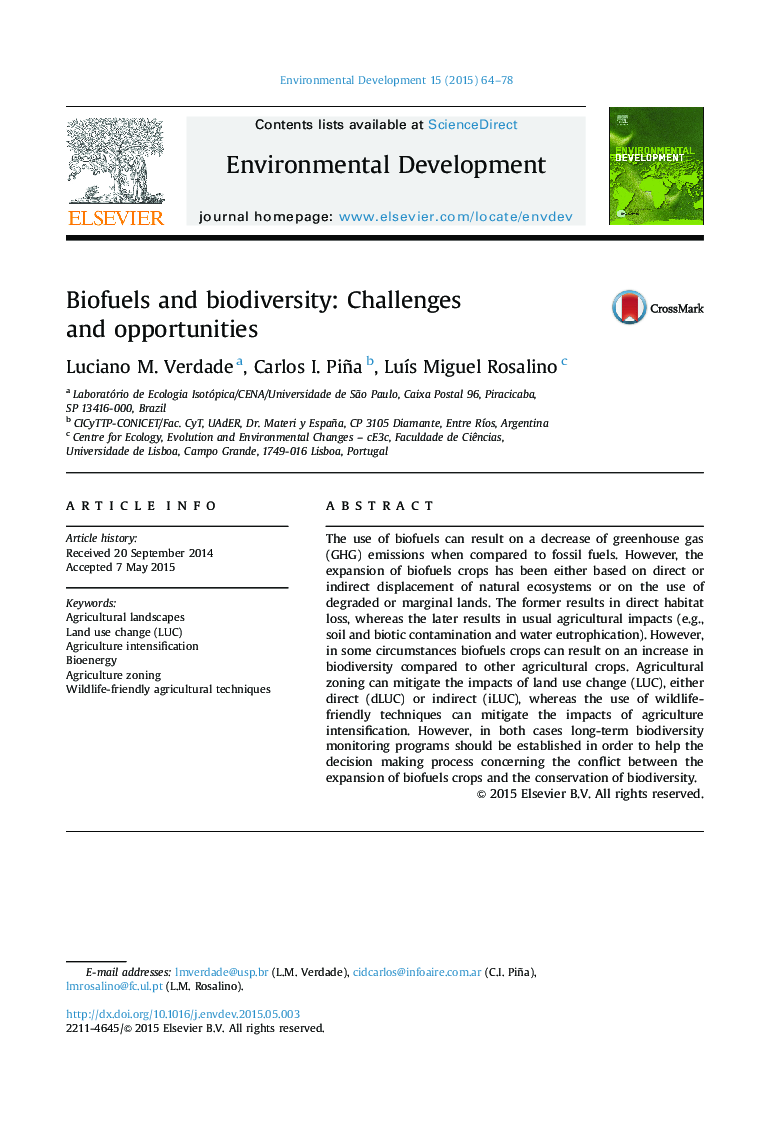| Article ID | Journal | Published Year | Pages | File Type |
|---|---|---|---|---|
| 6302952 | Environmental Development | 2015 | 15 Pages |
â¢Agricultural zoning can mitigate the impacts of biofuels crops expansion.â¢Wildlife-friendly techniques can improve biodiversity in biofuels crops dominated landscapes.â¢Long-term biodiversity monitoring programs should include agricultural landscapes.
The use of biofuels can result on a decrease of greenhouse gas (GHG) emissions when compared to fossil fuels. However, the expansion of biofuels crops has been either based on direct or indirect displacement of natural ecosystems or on the use of degraded or marginal lands. The former results in direct habitat loss, whereas the later results in usual agricultural impacts (e.g., soil and biotic contamination and water eutrophication). However, in some circumstances biofuels crops can result on an increase in biodiversity compared to other agricultural crops. Agricultural zoning can mitigate the impacts of land use change (LUC), either direct (dLUC) or indirect (iLUC), whereas the use of wildlife-friendly techniques can mitigate the impacts of agriculture intensification. However, in both cases long-term biodiversity monitoring programs should be established in order to help the decision making process concerning the conflict between the expansion of biofuels crops and the conservation of biodiversity.
